Search
Remove Ads
Advertisement
Summary 
Loading AI-generated summary based on World History Encyclopedia articles ...
Search Results

Definition
Titus Andronicus - Shakespeare's Bloodiest Play
Titus Andronicus is the earliest tragedy by William Shakespeare (l. c.1564-1616), probably written sometime between 1589 and 1593, and first performed in 1594. Infamous for its gratuitous violence and two-dimensional characters, Titus Andronicus...
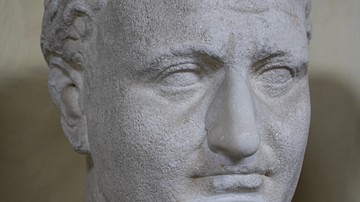
Definition
Titus (Roman Emperor)
Titus was Roman emperor from 79 to 81 CE. On June 24, 79 CE Titus Flavius Vespasianus succeeded his father Vespasian (r. 69-79 CE) as emperor of the Roman Empire. Prior to his ascension to the throne, he was considered by many as “…unpopular...
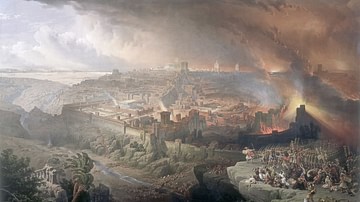
Article
The Siege of Jerusalem in 70 CE
The Siege of Jerusalem in 70 CE was the high watermark in the First Jewish-Roman War (66-73 CE) regarding the tension between the two forces. With the Roman Empire transitioning from the Julio-Claudian emperors to the Flavian dynasty in the...

Article
The Arch of Titus, Rome
The Arch of Titus is a Roman Triumphal Arch which was erected by Domitian in c. 81 CE at the foot of the Palatine hill on the Via Sacra in the Forum Romanum, Rome. It commemorates the victories of his father Vespasian and brother Titus in...
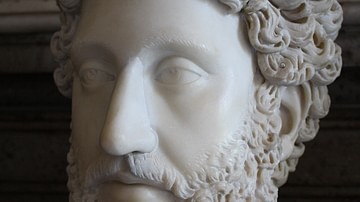
Definition
Roman Emperor
Roman emperors ruled the Roman Empire starting with Augustus in 27 BCE and continuing in the West until the late 5th century CE and in the Eastern Roman Empire up to the mid-15th century CE. The emperors took titles such as Caesar and Imperator...
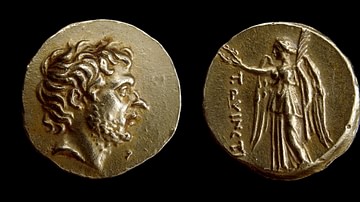
Definition
Titus Quinctius Flamininus
Titus Quinctius Flamininus (229-174 BCE) was a consul and military commander of the Roman Republic during the Second Macedonian War, who decisively defeated Philip V of Macedon (r. 221-179 BCE) at the Battle of Cynoscephalae in 197 BCE and...
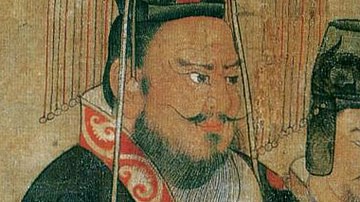
Definition
Chinese Emperor
The emperors of ancient China had tremendous power and responsibility. Called the 'Son of Heaven', he (and once she) was given a divine right to rule over all people but was expected to promote their best interest and not his own. An absolute...

Video
Life of Emperor Titus #10 - The Good Emperor, Roman History Documentary Series
Emperor Titus was the first emperor to succeed his biological father on the imperial throne. He is considered to be one of the few good emperors. His short reign is best remembered for the opening of the Flavian Amphitheater(Colosseum) in...
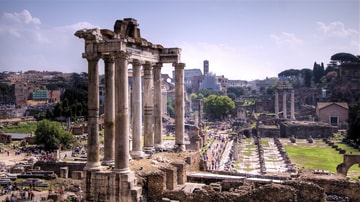
Definition
Roman Forum
The Roman Forum or Forum Romanum of ancient Rome was the bustling religious, administrative, legal, and commercial heart of the city from the 7th century BCE onwards. Made increasingly grandiose and ceremonial in function by the Imperial...
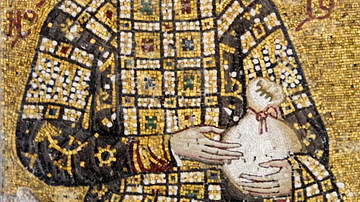
Definition
Byzantine Emperor
The Byzantine Emperor ruled as an absolute monarch in an institution which lasted from the 4th to 15th century CE. Aided by ministers, high-ranking nobility, and key church figures, the emperor (and sometimes empress) was commander-in-chief...